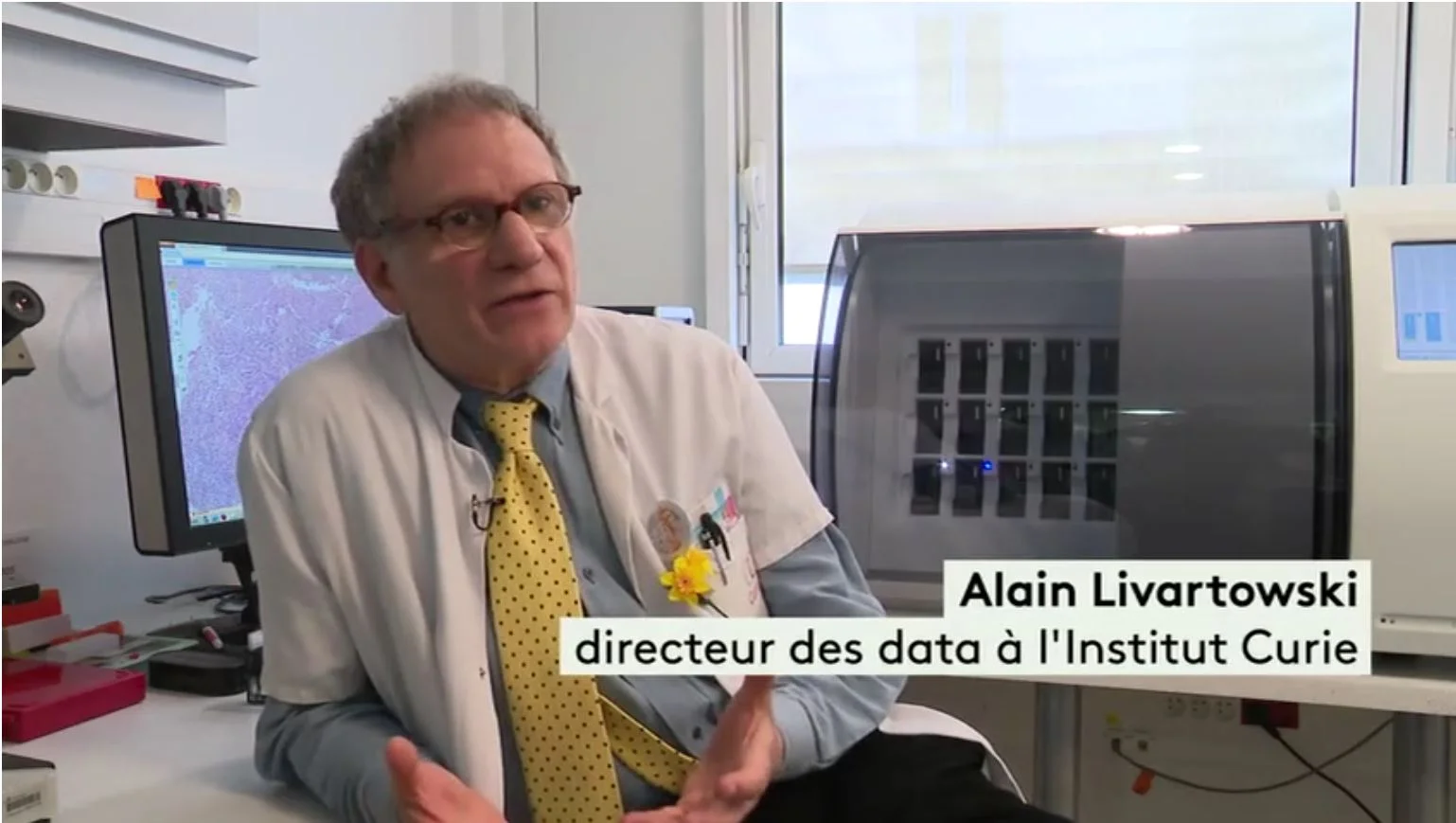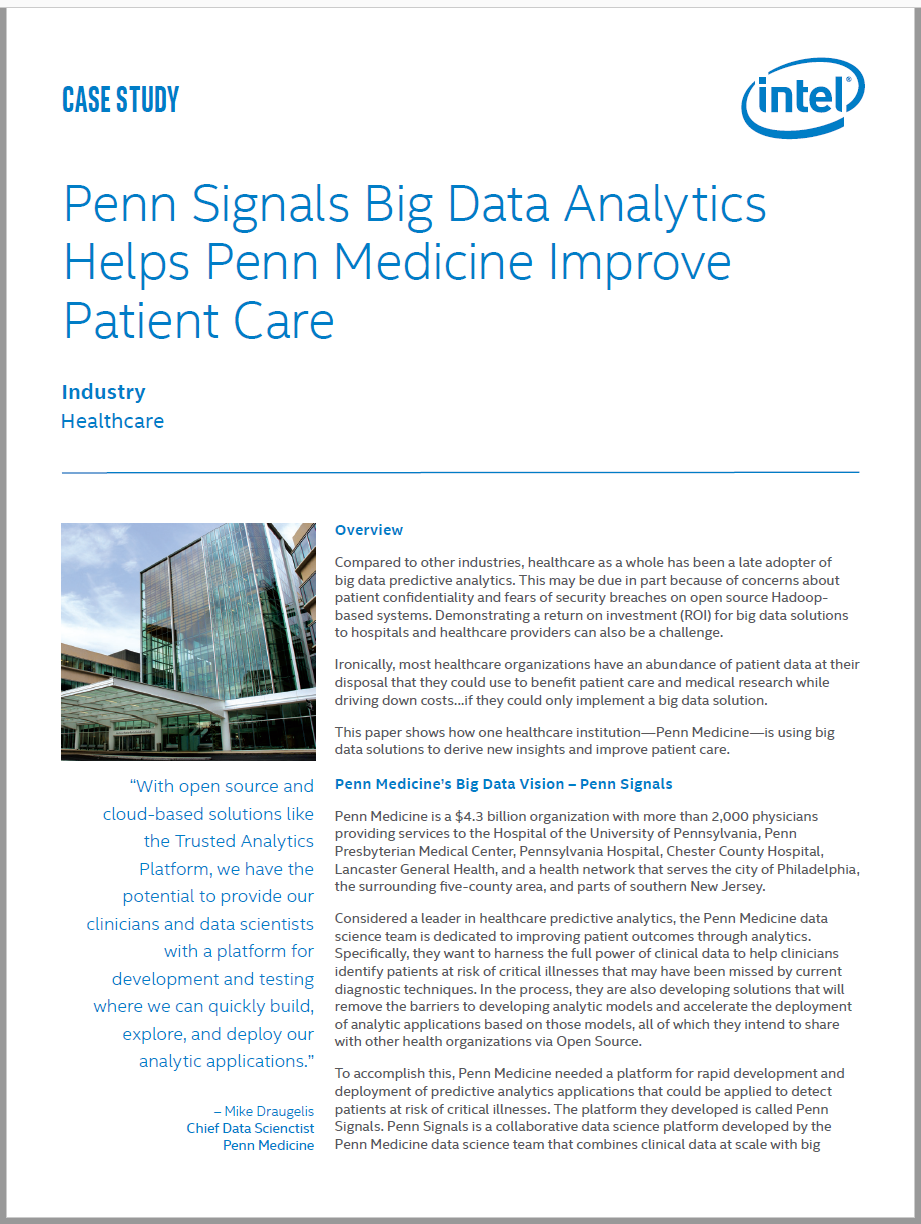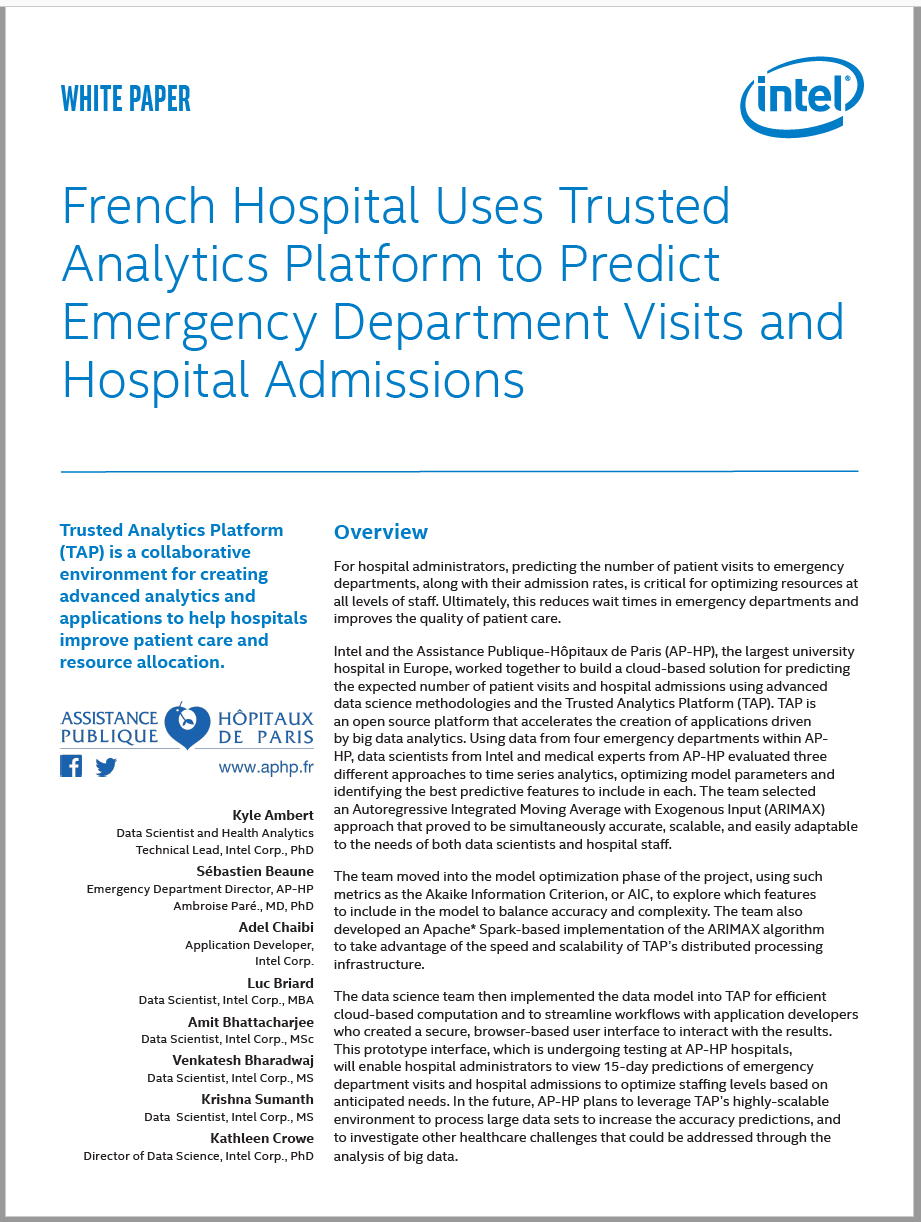Predictive Clinical Analytics
"The problem is not insufficient data. We spend a great deal of time entering information in a wide range of systems, and we have compiled massive volumes of potentially valuable data. The problem is that the data is fragmented and isolated. We need new tools that are more advanced in terms of knowledge – that bring the data together, show us the relationships between information, and provide us with answers. Then, the data can begin to deliver its full value."
Eddy Willm, Director of Information Systems at ICM (Montpellier)
"As we learn more about the way cancer has progressed in each patient and about the effectiveness of each treatment, there will be less need for trial-and-error approaches. We will be able to say with greater certainty when treatment is necessary and which treatment will be most effective. This will help us avoid unnecessary expense and suffering."
Dr. Alain Livartowski, Data Director at Institut Curie (Paris)
"There is tremendous research done in healthcare to understand the progression of illness; what is difficult is to translate those things into quick decisions that nurses and doctors, that patients can make. What you are left with is treating the body as if it is levers and pulleys, with a lot of false alarms, missing a lot of patients. The reason is you have to translate in a way our human brains can understand. It is very difficult to think about the relationship of variables over time but that is something that machines do very well. We looked for very rare events that might otherwise fall under the radar, very complex events which are great opportunities for applying machine learning or AI."
Michael Draugelis, Chief Data Scientist at Penn Medicine (Philadelphia)
"The primary consideration in the development of our data science project was to improve patient care and outcomes. If patients had access to accurate real-time data on wait times at all AP-HP emergency departments, and information about the availability of specialized care opportunities at various locations, some of them could make more informed decisions about where they seek care.”
Raphaël Beaufret, Director of Transformation at AP-HP (Paris)
Learn More
- Assistance Publique-Hôpitaux de Paris (AP-HP), visit https://www.aphp.fr/
- Institut Curie, visit https://science.institut-curie.org/
- Institut Curie GitHub, get the source https://github.com/sysbio-curie/, https://github.com/fredjarlier/mpiSORT
- Penn Medicine, visit http://predictivehealthcare.pennmedicine.org/
- Penn Medicine GitHub, get the source https://github.com/orgs/pennsignals
- UNICANCER, visit http://www.unicancer.fr
Citation: Pierre Heudel, Alain Livartowski, Patrick Arveux, Eddy Willm, Christophe Jamain, "ConSoRe: un outil permettant de rentrer dans le monde du big data en santé", Bulletin du Cancer, Volume 103, Issue 11, 2016, Pages 949-950, ISSN 0007-4551, https://doi.org/10.1016/j.bulcan.2016.10.001
- Sword Group, visit https://www.sword-group.com/en/
- Intel AI in Healthcare, visit http://www.intel.com/healthcare/
- Intel's AI Academy, visit https://software.intel.com/ai-academy
Acknowledgements
- Assistance Publique-Hôpitaux de Paris (AP-HP): Raphaël Beaufret, Dr. Sébastien Beaune, Dr. Ambroise Paré
- Centre Léon-Bérard: Dr. Pierre Heudel
- Institut Curie: Emmanuel Barillot, Philippe Hupé, Frédéric Jarlier, Dr. Alain Livartowski, Amaury Martin
- Institut du Cancer de Montepellier: Eddy Willm
- Penn Medicine: Michael Draugelis
- UNICANCER: Christophe Jamain
- Sword Group: Frederik Joly
- Intel: Kyle Ambert, Amit Bhattacharjee, Joe Bailey, Nisrine Belhaj-Soulami, Luc Briard, Adel Chaibi, Michael Demshki, Valère Dussaux, Isabelle Flory, Christopher George, Ron Kasabian, Gabriele Paciucci, Benoit Philippe, Marie Pinon, Marie-Christine Sawley, Prashant Shah, Oleg Stepanov
- Marketing & Video Production: Julie Choi, Joan Hankin, Allyson Klein, Bryce Olson
- Editorial: Jan Rowell







